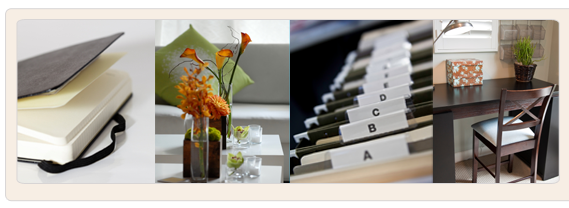ORGANIZING YOUR FINANCIAL RECORDS AND IMPORTANT DOCUMENTS – Part 2
“Documents create a paper reality we call proof.”
-Mason Cooley, American Writer (1927-2002)
Do you pay your bills on time? Do you file your income tax return before the deadline?
If not, it’s never too late to get organized. In the event of an emergency, death or disaster, being able to find required documents quickly can make a difficult situation more manageable.
Planning
Plan to set aside a few hours to put your paperwork in order. If it feels overwhelming, break it down into smaller chunks—an hour a week until it’s done.
Getting Started
Start by sorting your paperwork into categories. If you don’t need it, get rid of it. Remember that 80% of what you file you will never look at again. Reduce your risk of identity theft by shredding any documents containing your name, address and/or account numbers. Label files so that you will be able to find items when you need them. Create an Action file for any items requiring your attention.
Bank Statements
Check your statements against ATM withdrawal slips and your chequebook as soon as possible after your statement arrives (either in the mail or electronically). Most banks ask that you notify them of any errors within 30 days. Shred the slips as soon as you reconcile your statement.
Credit Card Statements
Check your statements against your credit card receipts as soon as possible after your statement arrives. Keep receipts for large purchases or items with a warranty.
Investment Statements
Statements pertaining to your investments should be kept for income tax purposes.
Income Tax Returns
Keep all of your income tax paperwork in one location—preferably not in a shoebox! Most income tax records need to be kept for 7 years. Check with your accountant or Canada RevenueAgency if you are unsure of what or how long you need to keep your paperwork.
Business Expenses
If you operate a home-based business, keep any receipts that you will need for deductions as business expenses. It’s easiest if you can keep your personal and business receipts separate.
Household Paperwork
Household bills often don’t need to be kept for more than a year. A copy of a gas or telephone bill can be obtained easily should the need arise. The exception to this rule may be if you operate a business from your home and claim a portion of the expenses on your income tax return. You may wish to keep the records for any major repairs or renovations, as well as the paperwork pertaining to building your home. Property tax statements, assessment notices and mortgage statements should be kept—together with your deed and mortgage.
Medical Records
Medical records should be stored in a safe place. Create a separate folder for each family member. If one family member has a number of medical conditions, create a different folder for each condition. Information you may be collecting about retirement homes or nursing homes for an aging parent should be kept in its own folder as well.
Storage
Store your records in a filing cabinet, storage box (plastic is preferred over cardboard) or a home safe. They are worth protecting.
Reward Yourself
When you’re done, don’t forget to reward yourself for your hard work! Investing the time to put your records in order will be worth the peace of mind!




Connect with us Online